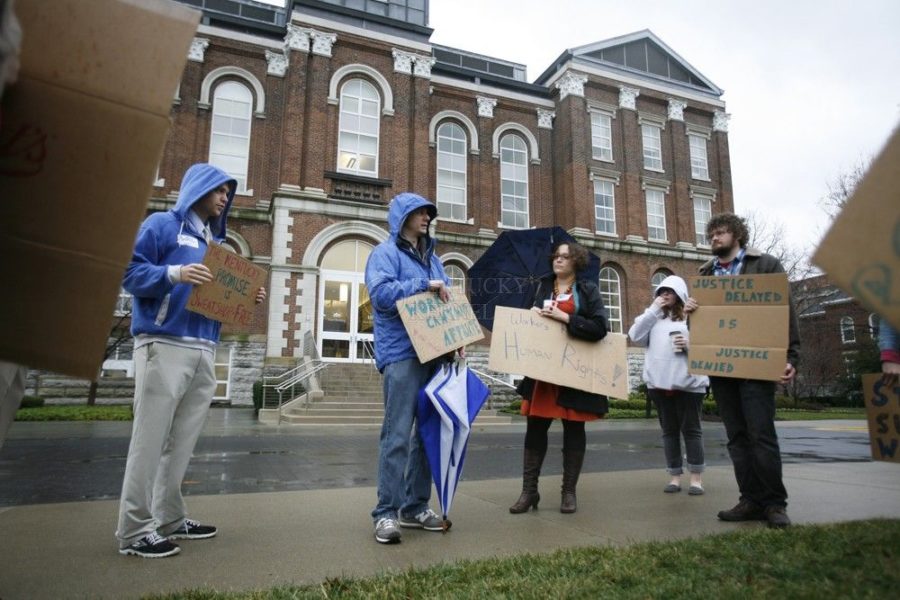Activism then and now: Students, professors discuss changing campus advocacy
Students gathered at the United Students Against Sweatshops protest in front of the main building in Lexington, Ky., on Wednesday, January 30, 2013. Photo by Tessa Lighty
October 23, 2013
By Anthony Gaither
College students have been heavily involved in activism and protests as early as the 1960s, but some question if students are still as concerned about what is happening around them.
“Today, people have become more separated,” political science professor Richard Waterman said. “Technology has divorced us.”
Some people feel like activism has decreased among college students.
“Today, students are less politically active,” political science junior Garrison Jones said. “In the ‘60s and ‘70s they were more active because they needed to be.”
UK students protested things including the Vietnam War and the Kent State shooting.
“Back then, times were really different,” Jones said.
Tracy Campbell, history professor, said the Civil Rights Movement and the Vietnam War was cause for activism on college campuses.
“For the Vietnam war, there was a military draft. Students were more politically active during this time because they knew there was a possibly they could be drafted,” Campbell said.
Students at UK display their activism through groups including UK UNICEF, the Feminist Alliance, the Kentucky Dream Coalition and the United Students Against Sweatshops.
Brock Meade, geography junior and member of United Students Against Sweatshops, said there are active groups on campus, but students have other opportunities to speak out. Meade’s group is pushing to prevent the privatizing of Dining Services.
While he said students are supportive of many campus movements, he said“there is still room for activism to grow.”
Some students think it is not the activism, but the political knowledge of some students that is lacking.
“I don’t think students have grown apathetic, but I also don’t think they express the right kind of political activism,” Kaitlyn Graybill, a history junior, said. “Uninformed voters are worse than those who aren’t politically active.”























































































































































